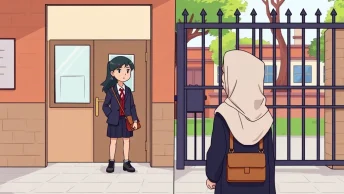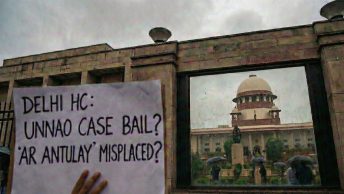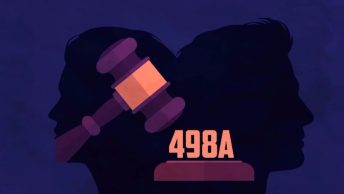[Ed Note: In the conclusion to our blog round-table book discussion, Danish Sheikh writes a response to the reviews for Love and Reparation: A Theatrical Response to Section 377 in India. The introduction by Douglas McDonald and the links for the other reviews (by Akhil Kang, Kriti Sharma, and Surabhi Shukla) can be found here.]
Early in 2011, my final year of law school, I received a mail from a lawyer working on the Section 377 litigation before the Indian Supreme Court, asking if I might submit an affidavit. This affidavit of mine would speak to the litigation team’s argument about how Section 377 fostered an atmosphere of discrimination where younger queers in educational institutions (I was once a younger queer) couldn’t express their sexuality freely.
Would I be willing to submit something to that effect?
I was willing. Over the next few weeks, I put together a narrative that explored the ways in which the law affected my life directly and indirectly. I spoke about the multiple contradictory things that constituted me and how my sexuality could often flatten out and subsume everything else, of what it meant to come of age in the shadow of criminality. I forged a story that jumped back to my years growing up as an Indian expatriate in the Middle East, through to my first heart-stopping coming-out experience, down to the day I wore a rainbow sweater in a law school classroom when I was finally ready. They wanted a story? I would give them drama. And so, I mailed the document.
The lawyer sent it back to me a week later. It was unrecognisable. Gone were the minor digressions, the quotidian details, the emotional crests and troughs. The document I read was affectively muted, bleached clean of my voice, accompanied with an apologetic email: “I’ve butchered your literary style I’m honestly very sorry. But you know how legal language is”.
Did I know how legal language was?
Frustrated as I was with this response, the lawyer had a point. Legal language is like this, in the sense that it is a genre that has conventions, and if you speak outside those conventions, you may not be recognized. Some of the greatest legal storytellers are acutely aware of this fact. Patricia Williams, for all her genre pyrotechnics that mash parody, parable and poetry against legal theory, notes the importance of with-holding her persona as a storyteller when speaking on behalf of a client in a courtroom (King and Monteith: 1997). Outside the courtroom, the conventions of legal language seep into other venues which engage in lawspeak. Law reviews are the other site where I’ve often found myself at odds with genre convention. The form of the article engages in a particular kind of constraining and channelling of what can be said and thought (Schlag: 2017) that can be somewhat stifling. Then there are the affective structures that undergird argument, as James Boyd White would say, “a kind of insistent assertiveness” where the text is often weighed down by trying to meet a range of imagined objections (White: 1991).
Genre trouble, then.
Love and Reparation is, amongst other things, my attempt at finding a genre to express some of the things I’ve wanted to say about the Section 377 litigation in particular and my relationship with the law more generally. The genre that I chose was theatre, which comes with its own set of affordances and impediments. In other words, theatre can channel and constrain thought in its own way; my interest was in the manner in which it might channel and constrain my thoughts productively.
Speaking of genres, the genre of the book forum asks that I express gratitude to my interlocutors, that I attempt to synthesise something from their diverse arrays of comments, that I then suggest ways in which we might take this conversation forward.
The first of these is very easy. I am deeply grateful to Anushree Verma and Gayatri Gupta of Law and Other Things and to my generous interlocutors – Douglas McDonald-Norman, Surabhi Shukla, Akhil Kang, and Kriti Sharma – who have taken my invitation to explore what theatre might make possible when considered as a legal genre, and unfurled that invitation across such engaging dimensions.
But then, to try and impose order on these incredibly productive comments, to bring the conversation to some kind of close? A bit more difficult. I’ll try and instead dwell in the realm of something altogether more chaotic, describing the thought-feelings that these interventions sparked.
One of the affordances of theatre as a genre is the manner in which it defers judgment. Plural worlds and voices can co-exist in the theatrical universe, with the audience/ reader making meaning in conversation with the playwright. Douglas’ description of the competing voices in Contempt made me think about this particular theatrical quality. As Douglas notes, the sterility and jargon of the judges competes with the joy, desire and heartbreak of the witnesses. Both sets of voices can unfold in the play; indeed, my critical intervention as far as the courtroom proceedings are concerned is at most a strategic editing of the utterances made by the judges. I try and let the law speak for itself, and allow the reader to make the final decision.
The other element of the courtroom exchanges picked up by Surabhi is also telling: “the acute unpredictability of courtroom operations”. Theatre allows us immediacy. “I need to take you there” is a line I’ve given to the character in Contempt who triggers its climactic moment, and it’s been a driving concern: How can I perform a sort of description that bridges the gap between my experience and your encounter? How can I bring what I feel in relation with what you feel, acknowledging the confounding subjectivity of the enterprise? The best I can do is to stage the scene, take you there, place you in the midst of the grinding interruptions of the courtroom, the “boxing match or a ‘Run Lola Run’ kind of film” in Surabhi’s words.
Perhaps the most obvious element that theatre offers those of us stifled by law’s genre conventions is the complexity of storytelling as an antidote to the law’s abstractions. My re-written affidavits in Contempt, and competing interludes in Pride, both attempts to play with these possibilities. As Kriti notes, I follow a range of conversations that are often at odds with each other, teasing out a few strands of the tensions that ripple across a strategic litigation as it becomes a synecdoche for a movement. Coming back to an observation by our legal storyteller par excellence Patricia Williams: “That life is complicated is a fact of great analytic importance. Law too often seeks to avoid this truth by making up its own breed of narrower, simpler, but hypnotically powerful rhetorical truths” (Williams: 1990). Pride in particular allowed me to play around with this question of the simplifying function of law. Even outside the space of the courtroom, there are ways in which the law constrains the stories we tell ourselves. Telling these stories slantwise, allowing them to meander felt like one way in which I might stage a dissent against legal storytelling.
Dissent comes with its own responsibilities. Dissenting from law’s dominant genres doesn’t mean I find myself unaccountable, only that my responsibilities shift. We are responsible for the stories we tell and how we choose to tell them. We are also responsible for the stories we choose not to tell. Akhil calls me to account for some of the choices I make with my storytelling. In Akhil’s words, at moments the dialogues challenging 377’s politics feel tokenistic; at others, I miss out crucial junctions where sexuality is multi-faceted. If the former is a question about how I tell certain stories, the latter is a point about what stories I omit to tell at all.
I take both points. On the question of tokenism, one of the tensions I attempted to traverse in Pride was between allowing its assortment of speakers to have a life of their own versus placing them as archetypes of a certain kind of figure we might find at different registers of a strategic litigation: the lawyer, the activist, the NGO worker, the student. To that end, my attempts at resisting law’s abstractions are halted in part by resting within the archetypal figure who comes with a different kind of abstraction.
As for the omissions, I can only agree. There are crucial intersections where sexuality is embedded across different kinds of politico-legal formations – including as Akhil points out, struggles to protect inter-religious and inter-caste love – that Love and Reparation is silent on. Why? If I am indeed concerned with queer lives lived in the shadow of the law, why omit these travels of sexuality? The lazy, dubious response would be to say that it’s merely a storytelling choice, and that I eventually told the story I wanted to tell. Lazy because it doesn’t really engage with the point, and dubious because I have somehow managed to weave Plato’s Symposium into this narrative, so why not the much more obvious, contemporary connections staring me in the face?
One way to approach this question might be to frame it within my genre concerns. I turned to theatre because I wanted to tell stories in a way that legal writing did not allow me to do. Once I started writing within the genre of theatre, I encountered a different kind of struggle: the desire to craft a neat, aesthetically coherent narrative versus the desire to represent and explore the irreducible complexity of lived life that law tries to flatten. Some – certainly not all – of my omissions emerge from a privileging of the former concern. But even then, I don’t think the two are necessarily at odds; indeed, to concede that point would be to reinscribe the illusory line between art and politics. Reinscribing that line would pretty much render any larger point I wanted to make about the law moot.
Where does that leave us? Clearly, I don’t have an answer. Without disavowing my own responsibility towards queer legal storytelling, my hope is that my inchoate experiments with genre here contribute to a conversation about how we can write law differently. In the specific instance of how the law narrates queer life, I consider this a contribution to a counter-archive. If the dominant archive of law in India is one that marks queerness as despicable (if it acknowledges queerness at all, and as Kriti’s invocation of the culpable homicide case which is silent on the sexual orientation of the deceased tells us, this is a big if), I like to think of Love and Reparation as sewing a thread within the fabric of an alternate normative universe. Repair-work, we might say.
References
King, Richard H and Sharon Monteith, ‘Juris-Generative Narratives: Talking to Patricia J. Williams Following the Reith Lectures.’ (1997) 9(2) Critical Survey.
Schlag, Pierre, ‘The Law Review Article’ (2017) 88 University of Colorado Law Review 1043.
White, James Boyd, Justice as Translation: An Essay in Cultural and Legal Criticism (University of Chicago Press, 1990)
Patricia J. WIlliams, Alchemy of Race and Rights: Diary of a Law Professor (Harvard University Press, 1991)







Thanks for sharing. I read many of your blog posts, cool, your blog is very good.